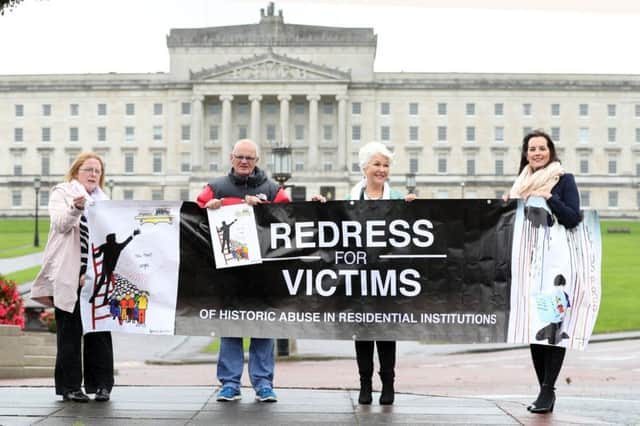High Court case to question deadlock in NI government


The appeal will argue that new rules granting more power to the Northern Ireland Civil Service, introduced by former secretary of state Karen Bradley last year, are unlawful.
If it succeeds, it will bring the way Northern Ireland has been run since the Assembly collapsed nearly three years ago into sharp focus.
Advertisement
Hide AdAdvertisement
Hide AdCivil servants were granted new powers under the Northern Ireland Executive Formation and Exercise of Functions Act in 2018, but its legality is now due to be called into question.
The appeal, which is due before the court on Friday, is being brought by a victim of historic institutional abuse over the failure to implement the recommendations of an inquiry.
In 2017, an inquiry into abuse at children’s homes and other residential institutions in Northern Ireland between 1922 and 1995 recommended a public apology and compensation for victims. But the recommendations have never been implemented.
A legal case was brought last year on behalf of an abuse victim, identified only as JR80, over the failure to introduce the compensation scheme.
Advertisement
Hide AdAdvertisement
Hide AdLawyers acting for JR80 had argued last year that the secretary of state has a legal obligation – in the absence of the Assembly – to either call an election or implement the compensation scheme directly.
But, in a ruling in May 2018, a judge stated that the ongoing failure to implement the historic institutional abuse inquiry’s findings was not unlawful.
Lawyers acting for JR80 are now set to argue that decision should be overturned and that there is a legal obligation on the secretary of state to either call an election or move to direct rule.
JR80 is being supported in the legal action by the SAVIA (Survivors And Victims of Institutional Abuse) lobby group, whose members are expected to turn up on Friday to back the appeal.
Advertisement
Hide AdAdvertisement
Hide AdClaire McKeegan, a solicitor with Phoenix Law who represent SAVIA, said: “JR80 was due to go ahead on the first occasion, back in 2018, but the secretary of state at that time brought forward the EFA legislation (Northern Ireland (Executive Formation and Exercise of Functions) Act 2018) to legislate her way out of the duty to call an election.
“Our case would have proceeded but for that legislation. We then amended our case to say that the act of bringing the Executive Function Act through parliament in November 2018 was contrary to the principle of the rule of law. We say that EFA was unlawful and that the secretary of state still has a duty to either call an election or to take the steps needed, for example, to bring the legislation to Parliament.”
She added: “The question before the court will be the question of who has the responsibility to take steps in the absence of devolution. It’s important that there’s clarity on who has responsibility to act in the absence of devolved ministers.”